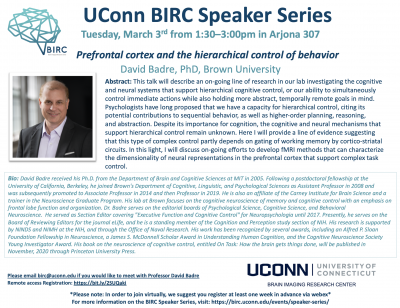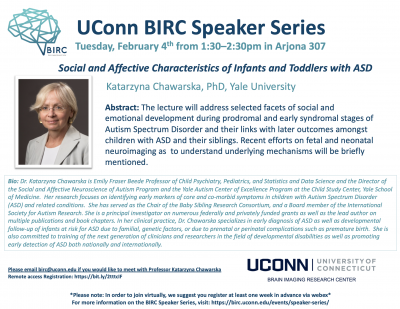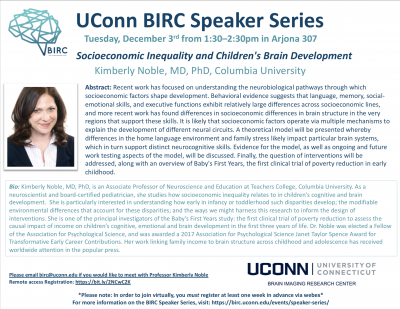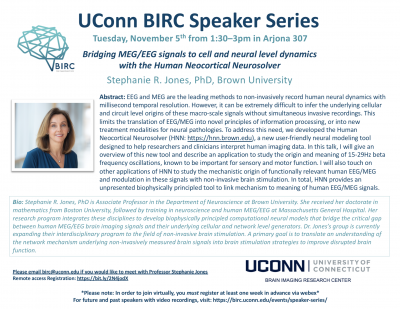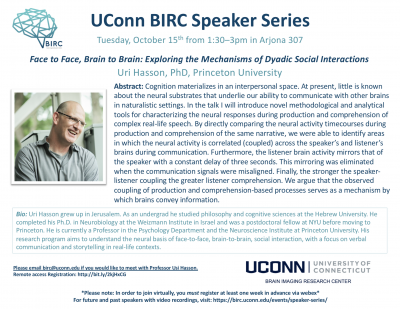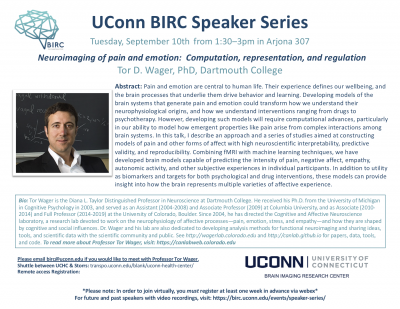Tuesday, March 3rd from 1:30-3:00 pm in Arjona 307
Abstract:
This talk will describe an on-going line of research in our lab investigating the cognitive and neural systems that support hierarchical cognitive control, or our ability to simultaneously control immediate actions while also holding more abstract, temporally remote goals in mind. Psychologists have long proposed that we have a capacity for hierarchical control, citing its potential contributions to sequential behavior, as well as higher-order planning, reasoning, and abstraction. Despite its importance for cognition, the cognitive and neural mechanisms that support hierarchical control remain unknown. Here I will provide a line of evidence suggesting that this type of complex control partly depends on gating of working memory by cortico-striatal circuits. In this light, I will discuss on-going efforts to develop fMRI methods that can characterize the dimensionality of neural representations in the prefrontal cortex that support complex task control.
Bio:David Badre received his Ph.D. from the Department of Brain and Cognitive Sciences at MIT in 2005. Following a postdoctoral fellowship at the University of California, Berkeley, he joined Brown’s Department of Cognitive, Linguistic, and Psychological Sciences as Assistant Professor in 2008 and was subsequently promoted to Associate Professor in 2014 and then Professor in 2019. He is also an affiliate of the Carney Institute for Brain Science and a trainer in the Neuroscience Graduate Program. His lab at Brown focuses on the cognitive neuroscience of memory and cognitive control with an emphasis on frontal lobe function and organization. Dr. Badre serves on the editorial boards of Psychological Science, Cognitive Science, and Behavioral Neuroscience. He served as Section Editor covering “Executive Function and Cognitive Control” for Neuropsychologia until 2017. Presently, he serves on the Board of Reviewing Editors for the journal eLife, and he is a standing member of the Cognition and Perception study section of NIH. His research is supported by NINDS and NIMH at the NIH, and through the Office of Naval Research. His work has been recognized by several awards, including an Alfred P. Sloan Foundation Fellowship in Neuroscience, a James S. McDonnell Scholar Award in Understanding Human Cognition, and the Cognitive Neuroscience Society Young Investigator Award. His book on the neuroscience of cognitive control, entitled On Task: How the brain gets things done, will be published in November, 2020 through Princeton University Press.
Please email birc@uconn.edu if you are interested in meeting with a speaker. Click here to see the full BIRC Speaker Series schedule and access recordings of past talks.
